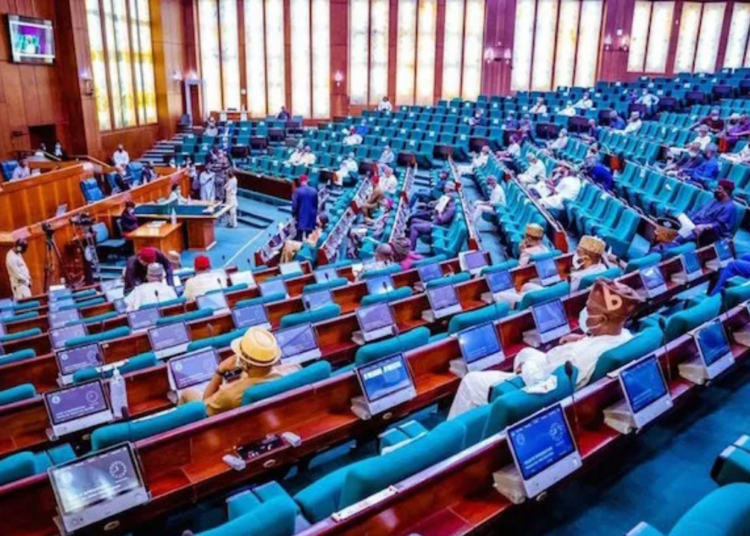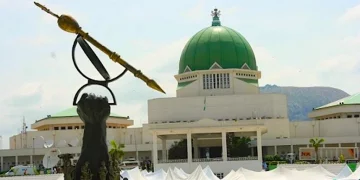As the House of Representatives gears up to begin the constitutional amendment process with the inauguration of the Constitution Review Committee today, there are plans to toughen the conditions for election into the office of the president and state governors.
These conditions are proposed in some bills to be considered by the Committee chaired by the Deputy Speaker of the House, Hon. Benjamin Kalu, with membership drawn from all states of the federation and the FCT as soon as its formal inauguration.
In the list of constitutional alterations bills sighted by LEADERSHIP are: “a Bill for an Act to Alter the Constitution of the Federal Republic of Nigeria, 1999 and for Related Matters (HB 877).
The bill seeks to alter Sections 134 (1)(a), 2(a), (4)(a) and 179 (2)(a) and (3)(a) of the 1999 Constitution by changing the system of the simple majority of electing the president of the Federal Republic of Nigeria and the state governors where there are more than two candidates to ensure the winner scores more than a half of the total votes cast.
Other bills are those seeking to review the requirements for a person to be elected as president and vice-president as well as governor and deputy governor of a state, though the House recently stepped down a bill seeking to review upward the required educational qualification for some elective offices in the country to a minimum of university degree or its equivalent.
Three parliamentary system of government bills sponsored by minority leader of the house, Kingsley Chinda (PDP, Rivers), and 59 bills which passed first reading propose a change in the mode of election of the president who must be first elected as a lawmaker.
They include: Bill for Act to alter the Constitution to provide for the office of the Prime Minister as the Head of Government and the office of President as Head of State, and to provide for a framework for the mode of election to the said offices, and for related matters.
There is also a Bill for an Act to alter the Constitution, to review the mode of electing the state governors, deputy governors, and the appointment of the commissioners of the states and for related matters.
Likewise, there is a Bill for an Act to alter the constitution, to review the means of election into the offices of the Chairmen and Vice-Chairmen of the Local Government Councils in Nigeria, and for related matters.
Similarly, there is a Bill for an Act to Amend the Provisions of the 1999 Constitution of the Federal Republic of Nigeria to Review the Status of the Federal Capital Territory (FCT) as regards the election of the president of the Federal Republic of Nigeria to address the controversy that arose in the 2023 general election over the issue of 25 percent in two-thirds of the 36 states and FCT to meet the constitutional requirement to be declared as duly elected as president of Nigeria.
Also regarding the FCT, there are Bills for Acts to Alter the Provisions of the 1999 Constitution to Provide for the Office of the Mayor of the Federal Capital Territory Administration, Abuja; and to allow for more representation in the National Assembly for the Territory which currently has only three – one Senator and two members of the House.
While the House last week passed through second reading a Bill for an Act to Alter the 1999 Constitution to establish State Police and the transfer of Police as an item under the Exclusive Legislative List to the Concurrent List, another one is pushing for the establishment of State Police Force and for related matters.
The House also has before it a Bill for an Act to alter the 1999 Constitution by increasing the percentage of derivation fund of the Revenue Accruing to the Federation Account directly from all natural resources and Value Added Tax (VAT) to not less than fifty percent (50%).
The House is planning to give legal backing to zoning with a Bill to make Provision for Rotation of Power among Geo-Political Zones and Senatorial Zones in Presidential and Gubernatorial Elections in Nigeria, and for related matters.
There is also a Bill seeking to grant to the two chambers of the National Assembly and the States Houses of Assembly powers to summon the president of the Federal Republic of Nigeria and governors of states respectively, to answer questions on issues of national security or any matter whatsoever, over which the National Assembly and the state Houses of Assembly have powers to make laws and for related matters is reintroduced.
Another proposed legislation intends to amend the provisions of the 1999 Constitution to provide for an Independence Referendum for states to enforce their rights of self-determination under the African Charter on Human and People’s Right and other Related Matters.
Furthermore, there are Bills to amend the 1999 Constitution to provide for the Recognition of the advisory role of Traditional Rulers in the Constitution, and transfer the powers of the National Judicial Council to Appoint or Remove Judges of the State Courts to the Governor of a State.
There is also Also a Bill to Confer Jurisdiction on the Federal High Court to Try Offences Arising from Violations of the Provisions of the Electoral Act and any other Related Act of the National Assembly; and for Related Matters is listed for the consideration.
There is a bill seeking for the business of the National Assembly to be conducted in English, and in Hausa, Igbo, Yoruba and sign language when adequate arrangements have been made.
The committee will also be considering a bill which seeks to alter sections 143(2)(a) and 188(2)(a) of the Constitution to make it a gross misconduct for elected office holders to defect from the party on which platform they won election without division in the original political party at the national level.





